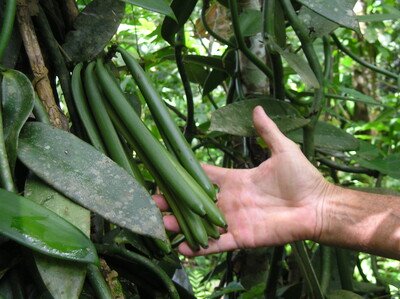The merits of community-based restoration
Globally, the area that is suffering desertification and land degradation is ever expanding. Unsustainable and often large-scale agricultural practices, including the copious use of pesticides and fertilisers, are a major driver of land degradation, aprocess that is further exacerbated by climate change, causing more erratic rainfall patterns, longer periods of drought and unpredictable growing seasons. This is very problematic not only for the hundreds of millions of people who directly depend on land and water for their livelihoods, but also for life on earth as a whole. It is clear that this process must be stopped and reversed, better sooner than later. But how to go about it?
Promising initiatives
Fortunately, all around the world promising initiatives are emergingto turn the tide. Both ENDS is supporting a number of these initiatives by working together with local organisations and networks. In various countries in the Sahel for example, groups of farmers and pastoralists have restored vast tracts of land by nurturing what spontaneously sprouts from the soil and protecting these young plants from cattle and other hazards. In Sri Lanka, plantation owners together with local communities have transformed degraded tea plantations into productive food forests, where sustainable tea is grown under a canopy of avocado, coconut and pepper. In Bolivia, small-scale farmers have embraced agroecology and the accompanying biological pest control methods to counter the destructive expansion of industrial agriculture causing the pollution of water and soils.
The merits
These are just a few examples, but similar community-based restoration and sustainable land use initiatives are happening at the grassroots levelall around the world, sometimes as answers to current destructive practices, sometimes as a continuation of what people have already been doing successfully for decades. They are future-proof ways to reach Sustainable Development Goal 15: ‘Protect, restore and promote sustainable use of terrestrial ecosystems, sustainably manage forests, combat desertification, halt and reverse land degradation and halt biodiversity loss.’ They can not only make a relevant contribution to addressing land degradation, but also climate change. While on the one hand they help mitigation efforts through the absorption of carbon by newly grown trees and improved soils, on the other hand they also have a positive impact on people’s income, health, adaptive capacity and resilience.
Community-based and inclusive
Although they can be very different, community-based restoration and land use initiatives have important common features that might explain their success, be it on a large or a smaller scale. Firstly and most importantly – they arecommunity-based. This means that they have to be grounded within the community itself and be adopted and implemented by its members – with or without support from others. When people feel ownership and see their needs met in both the short and the long run, they are more inclined to use a certain method as analternative way. Another important feature is inclusiveness: all people that might be positively or negatively affected by sustainable land use or restoration activities (herders, farmers, women, youth and water users, amongst others), should be involved in the decision making and implementation of these initiatives.
Make it grow
In order for such initiatives to grow, flourish, scale up and spread, several conditions must be met. First of all, land (use) rights are extremely important. Who will invest time and energy in land that can be taken away at any moment? Also, communities, scientists and policy makers must work together and exchange both scientific and local knowledge and experiencesto improve and disseminate certain land use and restoration methods. Last but not least, access to technical and financial resources is crucial to let these initiatives develop to their full potential as alternatives to current and often destructive (agricultural) practices.
Read more about this subject
-
Transformative Practice
Non-Timber Forest Products (NTFPs)
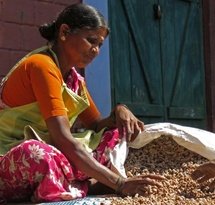
About one in every six people, particularly women, directly rely on forests for their lives and livelihoods, especially for food. This shows how important non-timber forest products (NTFPs) and forests are to ensure community resilience. Not only as a source of food, water and income, but also because of their cultural and spiritual meaning.
-
Transformative Practice
Analog Forestry
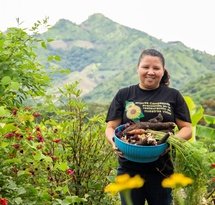
Analog forestry is a transformative approach to the ecological restoration of degraded lands. Natural forests are used as guides to create ecologically sustainable landscapes, which support the social and economical needs of local communities.
-
Transformative Practice
Farmer Managed Natural Regeneration
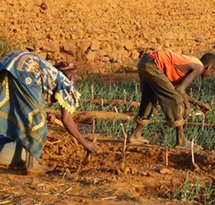
In various countries in the Sahel, vast tracts of degraded land have been restored by the local population by nurturing what spontaneously springs from the soil. They do this using a method called 'Farmer Managed Natural Regeneration (FMNR)'.
-
Transformative Practice
Agroecology
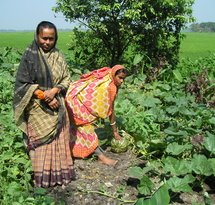
Agroecology is a diverse set of agricultural practices, a field of science and a social movement. It aims to transform food systems towards greater ecological sustainability, social justice, and resilience. Both ENDS and CSO-partners around the world support farmers and pastoralists practising agroecology, both on the ground and in gathering political and financial support.
-
Transformative Practice
Inclusive Land Governance
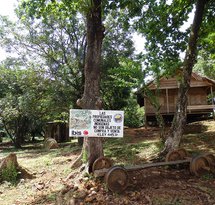
Both ENDS works with partners around the world to ensure that land is governed fairly and inclusively and managed sustainably with priority for the rights and interests of local communities.
-
Transformative Practice
A Negotiated Approach for Inclusive Water Governance
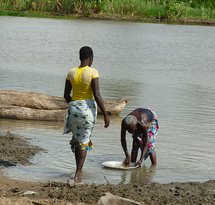
A Negotiated Approach envisages the meaningful and long-term participation of communities in all aspects of managing the water and other natural resources on which their lives depend. It seeks to achieve healthy ecosystems and equitable sharing of benefits among all stakeholders within a river basin. This inclusive way of working is an essential precondition for the Transformative Practices that are promoted by Both ENDS and partners.
-
Dossier
Finance for agroecology
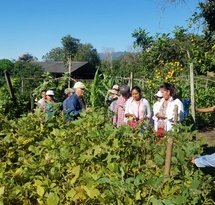
The lion's share of public budgets for climate, agriculture and development still goes to conventional agroindustrial projects that contribute to the current climate, food and biodiversity crises. Both ENDS and our partners are calling for a transition to agroecological practices that are people- and environment-friendly.
-
Dossier
Inclusive ways to sustainable and healthy food for all
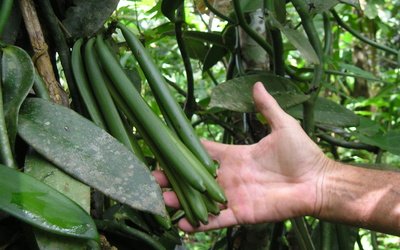
All around the world small-scale farmers are using sustainable and inclusive methods to produce food. Working together with nature and each other, they provide their families and communities with sufficient and healthy food. But their production methods are under pressure from large-scale agriculture and the globally dominant system of industrial food production. Together with our partners, Both ENDS is trying to turn the tide in favour of sustainable, local practices that are mostly known as 'agro-ecological' or 'nature-inclusive'. Why are we focusing on these methods? Agro-ecological practices are climate-proof and inclusive and increase the opportunities for communities around the world to produce their food sustainably.
-
Dossier
Wetlands without Borders

With our Wetlands without Borders program, we work towards environmentally sustainable and socially responsible governance of the wetlands system of the La Plata Basin in South America.
-
Dossier
Rich Forests
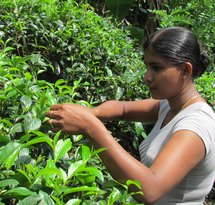
Rich Forests promotes a sustainable and future-proof production system and supports, among other things, the transformation of degraded land into food forests. With this, people provide for their livelihood, increase their income and at the same time restore soil and biodiversity.
-
Dossier
Communities Regreen the Sahel
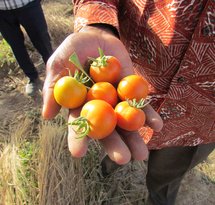
In various countries in the Sahel, vast tracts of land have been restored by the local population by nurturing what spontaneously springs from the soil and protecting the sprouts from cattle and hazards.
-
Dossier
Participatory Land Use Planning (PLUP)
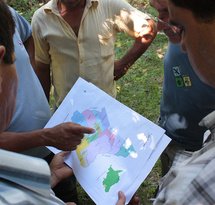
Participatory Land Use Planning (PLUP) is a rights-based approach ensuring inclusive and gender-responsive land governance, especially for those whose rights to land are not fully acknowledged.
-
Dossier
Green Climate Fund: calling for local access to climate finance
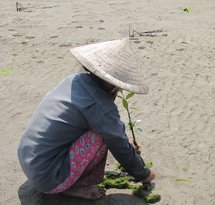
Local organisations and groups must be given access to climate finance from the Green Climate Fund. They know exactly what is happening in their local context and what is required for climate adaptation.
-
Dossier
Global Alliance for Green and Gender Action (GAGGA)
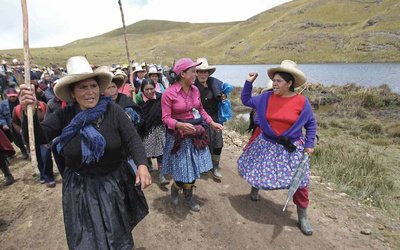
GAGGA rallies the collective power of the women's rights and environmental justice movements to realize a world where women can and do access their rights to water, food security, and a clean, healthy and safe environment.
-
Dossier
Fighting for improvements in the production of palm oil
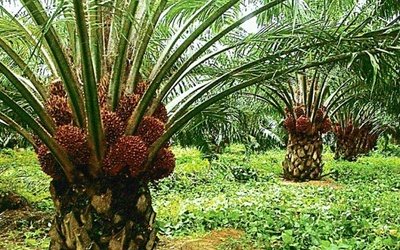
The production of palm oil is causing social and environmental problems worldwide. Both ENDS is working to make the sector fairer and more sustainable and is promoting alternatives for palm oil.
-
Press release / 4 March 2024
Dutch government calls for investigation into Malaysian timber certification
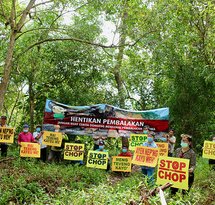
The Dutch government expects PEFC International to undertake an investigation into its own role as a forest certification system, using the Malaysian Timber Certification Scheme (MTCS). "It is about time the Dutch government takes a leading role in ensuring Malaysian timber entering The Netherlands is not associated with deforestation and human rights abuses," states Paul Wolvekamp of Both ENDS. "Considering that the Dutch government has the ambition to build 900.000 houses in the immediate future, involving massive volumes of timber, such as timber from Malaysia for window frames, builders, contractors, timber merchants and local governments rely on the Dutch government to have its, mandatory, timber procurement better organised, i.e. from reliable, accountable sources'.
-
News / 21 December 2023
The Netherlands is certainly not more Catholic than the Pope
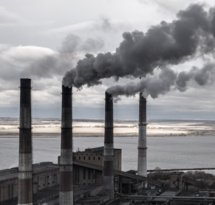
The Netherlands is well on its way with the energy transition at home, but our country continues to encourage Dutch investments in fossil projects elsewhere. This is obviously not in line with the climate goals and, moreover, these kinds of projects cause major problems in the countries where they take place. What can a new cabinet do to reduce the Dutch footprint abroad? Ellen Mangnus discussed this with several experts: today part 2.
-
News / 18 December 2023
Recommendations for Dutch foreign policy that works for people and planet, everywhere
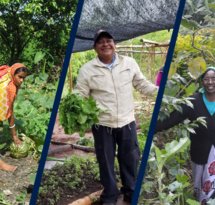
The parliamentary elections in the Netherlands are over, and the dust has somewhat settled. No matter what government emerges from the process, one thing is clear: in the Netherlands the main focus is on the Netherlands. Foreign affairs were hardly mentioned during the elections and the same applies to the process of forming a new coalition. More alarmingly, some of the winners in the elections want to cut themselves off even further from the world around us. -
News / 14 December 2023
The Netherlands can radically reduce its agrarian footprint
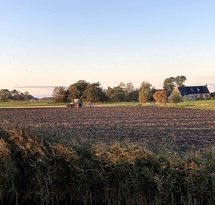
In the weeks following the elections, Both ENDS is looking at how Dutch foreign policy can be influenced in the coming years to reduce our footprint abroad and to work in the interests of people and planet. We will be doing that in four double interviews, each with an in-house expert and someone from outside the organisation.
-
News / 13 October 2023
Water is life, water is food: World Food Day 2023
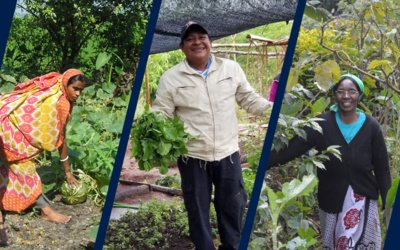
"Water is life, water is food" is this year's theme for World Food Day. Our partners around the world know all too well that this is a very true sentence. To celebrate World Food Day 2023 this October 16th, we'd like to show a few examples of how our partners fight for the right to water and this way, contribute to local food sovereignty at the same time.



